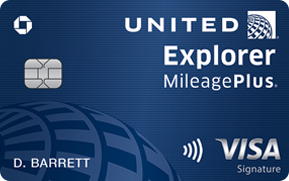- myFICO® Forums
- Types of Credit
- Credit Cards
- Rental car insurance coverage by credit cards
- Subscribe to RSS Feed
- Mark Topic as New
- Mark Topic as Read
- Float this Topic for Current User
- Bookmark
- Subscribe
- Mute
- Printer Friendly Page
Rental car insurance coverage by credit cards
Is your credit card giving you the perks you want?
Browse credit cards from a variety of issuers to see if there's a better card for you.
- Mark as New
- Bookmark
- Subscribe
- Mute
- Subscribe to RSS Feed
- Permalink
- Report Inappropriate Content
Re: Rental car insurance coverage by credit cards
@Anonymous wrote:
@NoMoreE46 wrote:Glad you posted this question @xenon3030 .
Does anyone know how the CDW applies if at all for Turo rentals?
When I was researching a different question about CDW, I came across many articles discussing this, saying basically "usually no"
Does Your Card Cover Car-Sharing Insurance? - NerdWallet
and from Turo themselves
Insurance or coverage via a credit card (turo.com)
Yeah, that is what I was thinking.
Kudos for the info @Anonymous .
- Mark as New
- Bookmark
- Subscribe
- Mute
- Subscribe to RSS Feed
- Permalink
- Report Inappropriate Content
Re: Rental car insurance coverage by credit cards
One other thing to be aware of is that the CDW coverage by cards can be made useless by certain state laws.
For instance, all auto policies written in the state of Minnesota include coverage for rental cars (including loss.... That means even if you drop comp and collision on all your vehicles, your liability coverage alone is enough to give you coverage on rental cars everywhere that policy applies (usually the entire US, and sometimes Canada as well).
Since personal auto insurance for MN residents is legally required to cover the rental car with no deductible, eclaimsline (the benefits administrator for Chase) asserts that this removes their obligation to act as primary insurance.
Per the eclaimsline FAQ, this applies to residents of NY, ND, MN, and RI. (See the PDL question)
- Mark as New
- Bookmark
- Subscribe
- Mute
- Subscribe to RSS Feed
- Permalink
- Report Inappropriate Content
Re: Rental car insurance coverage by credit cards
When you're renting a car, how much does rental car insurance usually cost?
- Mark as New
- Bookmark
- Subscribe
- Mute
- Subscribe to RSS Feed
- Permalink
- Report Inappropriate Content
Re: Rental car insurance coverage by credit cards
@MichaelMyer wrote:When you're renting a car, how much does rental car insurance usually cost?
The Loss Damage Waiver that the rental car companies sell isn't really insurance. You're buying an agreement that the rental agency won't hold you liable for any damages or ongoing administrative costs at the conclusion of the rental period, so long as you don't violate the terms of the agreement (no drunk driving, no off-roading, no driving for Uber, etc).
It's $20-30/day, which can be pretty expensive, but it grants you the ability to toss the rental agency the keys and everything beyond that point is no longer your problem. You're not responsible for damages, loss of use, administrative fees, etc.
When you use the credit card CDW coverage or your personal insurance it really is insurance. If something happens to the car there is a claim process, and a bunch of paperwork needs to be filed, and the whole thing can take months. The rental agency can charge your card for the damages up front and leave you carrying that expense until the insurance finally pays out months later. There are also several costs including diminished value and loss of use (that you agree to as part of the rental contract) that may be problematic when relying on an insurance product for coverage.
There's a good article that covers 10 reasons why one might want to consider purchasing the rental agency's overpriced damage waiver: https://www.independentagent.com/vu/SiteAssets/Documents/PDF/Top10CDWConsumer.pdf
- Mark as New
- Bookmark
- Subscribe
- Mute
- Subscribe to RSS Feed
- Permalink
- Report Inappropriate Content
Re: Rental car insurance coverage by credit cards
@SpaethCo wrote:
There's a good article that covers 10 reasons why one might want to consider purchasing the rental agency's overpriced damage waiver: https://www.independentagent.com/vu/SiteAssets/Documents/PDF/Top10CDWConsumer.pdf
That's an interesting article (albeit by an insurance person!). I had some of the same thoughts recently. My wife went in to a rental declining CDW because she was using the Altitude Reserve, but was pressured to take it based on basically lies (you won't be covered by credit card or insurance if you damage another car in a parking lot for example) and the large line behind her! I complained to the company hq and the charge was reversed. But then it was only $70 for three days, and maybe that's worth it to avoid hassle, even if the coverage was the same?
- Mark as New
- Bookmark
- Subscribe
- Mute
- Subscribe to RSS Feed
- Permalink
- Report Inappropriate Content
Re: Rental car insurance coverage by credit cards
My thinking on this is that it comes down to 2 key factors:
- How frequently do you rent cars?
- What's your budget for splurging for "luxury" ?
If you rent often enough the math will always say to skip the rental agency damage waiver. Even if you do get stuck paying for diminished value and loss of use out of your own pocket in a statistically rare bad event, with enough rentals you would have saved enough money not buying the waiver each time that you'd probably still be money ahead.
The reason I've started just buying the damage waiver is because at this point based on my frequency of renting cars and financial means the dollars end up being inconsequential. There's something to be said for not having to spend the time doing a thorough walkaround video before taking the car off the lot and not having to care what happens to the car while I have it. It's not an efficient use of money, but when it comes to travel I feel like most things result in a sacrificing financial efficiency for minor improvements to comfort and convenience. (standard room vs suite, self-park vs valet, economy vs business class, etc)
- Mark as New
- Bookmark
- Subscribe
- Mute
- Subscribe to RSS Feed
- Permalink
- Report Inappropriate Content
Re: Rental car insurance coverage by credit cards
My take on this conversation is we're over thinking it. Why? The way I look at it, if I rent a car for more than three or four days per year, that basically covers the $95 annual fee of my CSP, and with the exception of the COVID years, I definitely rent more than that.
Chapter 13:
- Burned: AMEX, Chase, Citi, Wells Fargo, and South County Bank (now Bank of Southern California)
- Filed: 26-Feb-2015
- MoC: 01-Mar-2015
- 1st Payment (posted): 23-Mar-2015
- Last Payment (posted): 07-Feb-2020
- Discharged: 04-Mar-2020
- Closed: 23-Jun-2020
I categorically refuse to do AZEO!






In the proverbial sock drawer:



- Mark as New
- Bookmark
- Subscribe
- Mute
- Subscribe to RSS Feed
- Permalink
- Report Inappropriate Content
Re: Rental car insurance coverage by credit cards
@Horseshoez wrote:My take on this conversation is we're over thinking it. Why? The way I look at it, if I rent a car for more than three or four days per year, that basically covers the $95 annual fee of my CSP, and with the exception of the COVID years, I definitely rent more than that.
Yes, but that doesn't really address a lot of the conversation, which was "what is covered" (and the card doesn't cover all what OP may have hoped) and also "Should I get the rental car coverage anyway".
But yes, if the credit card CDW is all you need, then the CSP is a great choice, and, as you say, 3-4 days saving covers all/most of the AF.
- Mark as New
- Bookmark
- Subscribe
- Mute
- Subscribe to RSS Feed
- Permalink
- Report Inappropriate Content
Re: Rental car insurance coverage by credit cards
@SpaethCo wrote:My thinking on this is that it comes down to 2 key factors:
- How frequently do you rent cars?
- What's your budget for splurging for "luxury" ?
If you rent often enough the math will always say to skip the rental agency damage waiver. Even if you do get stuck paying for diminished value and loss of use out of your own pocket in a statistically rare bad event, with enough rentals you would have saved enough money not buying the waiver each time that you'd probably still be money ahead.
The reason I've started just buying the damage waiver is because at this point based on my frequency of renting cars and financial means the dollars end up being inconsequential. There's something to be said for not having to spend the time doing a thorough walkaround video before taking the car off the lot and not having to care what happens to the car while I have it. It's not an efficient use of money, but when it comes to travel I feel like most things result in a sacrificing financial efficiency for minor improvements to comfort and convenience. (standard room vs suite, self-park vs valet, economy vs business class, etc)
Right, and there really is an element of "risk" in that you can't 100% prevent damage to the car, which can then lead to time wasting claims, if not some actual financial loss. Looks like, as the article said, CDW may be a ripoff price wise, but by shady policies, it might be an almost necessary ripoff! Perhaps a new business for LTL Bank to look into....
- Mark as New
- Bookmark
- Subscribe
- Mute
- Subscribe to RSS Feed
- Permalink
- Report Inappropriate Content
Re: Rental car insurance coverage by credit cards
Read the fine print! My dad's wife was killed in an accident in Belize a few years ago. She waived the rental insurance thinking her personal insurance would cover it. We were on the hook for about $80k (a totaled Tahoe and medical expenses for the other driver). Her personal insurance (Progressive) only covered rentals in the US, US Territories, Mexico & Canada. Her MC did cover the rental car but nothing else.